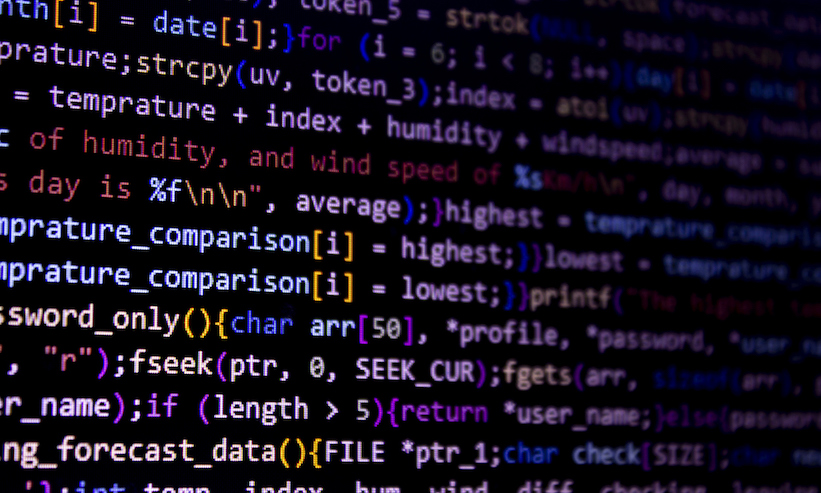If you’re a student considering learning a new programming language, Python should definitely be on your radar. With its easy-to-learn syntax and extensive library of packages, Python has become a favorite among beginners and experienced programmers alike.
Python is a high-level programming language that has gained widespread popularity in recent years. It is an interpreted, object-oriented language that includes built-in data structures, as well as dynamic typing and binding to assist in the rapid development of applications and connecting existing components.
Python is a powerful programming language that offers exciting career opportunities in a wide range of industries. Whether you’re a seasoned developer or just beginning your journey in tech, learning Python can enhance your skill set and boost your competitiveness as a job seeker.
So, if you’re curious to learn more about what jobs use Python and its potential in the job market, continue reading as we dive deeper into the six best careers for Python enthusiasts and explore the skills and qualifications you need to succeed in each field.
Python: An In-Demand Skill for Programmers
Python was developed by Guido van Rossum and released in February 1991, with its name inspired by the sketch series “Monty Python’s Flying Circus.” Today, Python is maintained by the Python Software Foundation, a non-profit membership organization.
There are several advantages to using Python. Its ease of use and ability to write new software make it an excellent choice for a wide range of jobs and industries, such as:
- Web development
- Data science and machine learning
- Scientific computing
- Finance
- Education
- Gaming
Additionally, Python comes with a vast library of packages for all of the following:
- Web browsers
- Threading
- Databases
- Regular expressions
- Image manipulation
- Document-generation
- Unit-testing
- CGI
Python is well suited for several types of projects, including:
- Web development
- Scientific and numeric applications
- AI and machine learning
- Desktop GUI
- Software development
- Business applications
- Education programs
- Language development
- Operating systems
- Web scraping applications
- Image processing and graphic design applications
Python has become one of the most in-demand programming languages among recruiters and hiring managers, solidifying its place as a key language for developers to learn. According to the Popularity of Programming Languages Index (PYPL), Python is the top Googled programming language, showcasing its widespread popularity. Furthermore, in 2022, Python was the third most in-demand programming language by recruiters.
When it comes to examining what jobs use Python, it’s important to note that the job market for Python-related roles has seen a tremendous increase in recent years, with more than 40,000 job advertisements in the United States on Glassdoor and around 75,000 on Indeed. These numbers demonstrate the vast number of opportunities for developers skilled in Python.
Python’s popularity is not only limited to the job market. According to Github, Python continues to see significant gains in usage across the platform, with a 22.5% year-over-year increase in 2022. This is due in large part to the language’s versatility and ease of use in a wide range of applications.
With that in mind, let’s dive into the top six jobs you may want to pursue if you’re interested in Python.
Download Our Comprehensive Checklist for Choosing the Right AI Degree Program
6 Jobs That Heavily Rely on Python
The growing demand for proficient Python developers has made it a highly sought-after skill, leading to an increasing number of careers with Python.
Job responsibilities: Python developers are responsible for designing, implementing and maintaining software applications. They need to have a strong understanding of software development and be proficient in Python.
Education: A degree in computer science or a related field is typically required.
Salary and job growth: The average salary for Python developers is $111,781 per year, and the expected job growth is 21% over the next decade.
2. Data Analyst
Job responsibilities: Data analysts collect, process and perform statistical analyses on large datasets. They use Python for data cleaning, transformation and visualization.
Education: A degree in mathematics, statistics or computer science is typically required.
Salary and job growth: The average salary for data analysts is $70,811 per year, and the expected job growth is 23% over the next decade.
Job responsibilities: Systems engineers are responsible for designing, implementing and monitoring complex computer systems. They use Python to automate tasks, configure systems and manage infrastructure.
Education: A degree in computer science, engineering or a related field is typically required.
Salary and job growth: The average salary for systems engineers is $99,848 per year, and the expected job growth is 21% over the next decade.
4. Machine Learning / AI Engineer
Job responsibilities: Machine learning / AI engineers use Python to build and implement algorithms that enable machines to learn and make decisions. They need to have a strong background in computer science, mathematics and statistics.
Education: An advanced degree in computer science or a related field is typically required.
Salary and job growth: The average salary for machine learning / AI engineers is $150,822 per year, and the expected job growth is 21% over the next decade.
Job responsibilities: Data scientists analyze and interpret complex data to help organizations make informed decisions. They use Python for data cleaning, analysis and visualization.
Education: A degree in mathematics, statistics or computer science is typically required.
Salary and job growth: The average salary for data scientists is $124,766 per year, and the expected job growth is 36% over the next decade.
Job responsibilities: Data engineers design, build and maintain the infrastructure that allows data scientists and analysts to work with large datasets. They use Python to write scripts and automate data pipelines.
Education: A degree in computer science, engineering or a related field is typically required.
Salary and job growth: The average salary for data engineers is $128,474 per year, and the expected job growth is 28% over the next three years.
Python is an in-demand skill for each of these careers, and having experience with this language can increase your job prospects and salary potential. Consider learning Python if you are interested in pursuing any of these roles or if you want to become a more versatile programmer.
Combine Your Python Knowledge With a Degree in AI
Having an in-depth understanding of Python can open the doors to a wide range of careers across many different industries. With its versatility and increasingly high demand, Python programming knowledge is quickly becoming a must-have skill for any aspiring programmer or data scientist. Furthermore, the job market for Python-related roles is expected to continue expanding, making it a wise choice for those looking to build fulfilling careers with Python.
If you’re interested in breaking into this exciting field, consider the University of San Diego’s Applied Artificial Intelligence Master’s Degree program. This 100% online course of study offers the opportunity to learn key skills from expert faculty while gaining real-world experience through projects. Don’t miss out on your chance to advance your career in one of today’s most lucrative fields.



